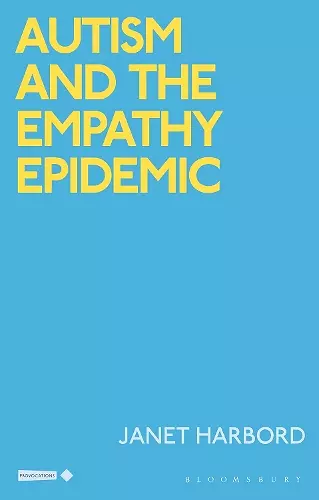Autism and the Empathy Epidemic
Format:Paperback
Publisher:Bloomsbury Publishing PLC
Published:30th Oct '25
Should be back in stock very soon

Embedded in film studies and neurodiversity scholarship, this open access book challenges the widespread idea that autism is an epidemic characterised predominantly by a deficit of empathy, arguing that the reverse is true: we are living through an empathy epidemic in which autism is the outcast.
Threading an enquiry through debates in neurodiversity scholarship and disability studies as well as film theory, this open access book challenges the widespread idea that autism is an epidemic characterised predominantly by a deficit of empathy, arguing that the reverse is true: we are living through an empathy epidemic in which autism is the outcast.
In 1908, the British psychologist, Edward Titchener, translated the German term Einfühlung into the English language as ‘empathy’, around the same time that Eugen Bleuler coined the term ‘autism’ for a group of symptoms subset to an emerging classification of schizophrenia. Empathy became a useful tool to describe relations between people in a clinical context, but in the process of its incorporation into psychology, it shed its rich sensory meaning from Einfühlung as ‘feeling-into’ weather systems, architectural forms, and artworks. A remarkable reversal takes place in the first part of the twentieth century whereby empathy becomes an intra-human ethical act, and autism emerges as its inverse. Digging up and examining the buried relation between autism with an earlier form of ‘empathy’, this book argues that autism, like cinema, models an ethical apprehension of the more-than-human world.
The eBook editions of this book are available open access under a CC BY-NC-ND 4.0 licence on bloomsburycollections.com. Open access was funded by The Wellcome Trust.
Beginning with an autistic perspective, Harbord refuses normative notions of the social, proposing forms and forces of sociality that are radically expanded through autistic life. This work will be very important to the growing milieu of critical autism studies. -- Erin Manning, University Research Chair in Relational Art and Philosophy in the Faculty of Fine Arts, Concordia University, Canada
This is an excellent book, representing a new and vital intervention in autism studies. It is timely in its focus and addresses a gap in the current scholarly literature. -- Julia Miele Rodas, Professor of English, Bronx Community College & the Graduate Center, City University of New York, USA
ISBN: 9781350345058
Dimensions: 214mm x 138mm x 12mm
Weight: 180g
136 pages